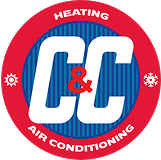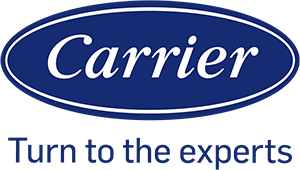Generally speaking, an air conditioner may be responsible for up to 50% of your home’s electricity bill. The wattage for your AC will depend on the model, size, energy efficiency, and age of the unit. Even if you knew the manufacturer’s specification for your AC, it would still be an estimate. Calculating the wattage depends on many different variables. In this article, we’ll outline how to determine the power consumption of your equipment in watts.
Wattage and Choosing an Efficient Cooling System
A watt is the unit for measuring power recognized globally. It can be defined as a product of the current and the equipment’s voltage. But wattage is often measured over in kilowatt/hours to determine energy consumption with a specified time. For example, a 50-watt fan will consume 150 watts/hour or 1.5 kilowatts/hour.
It is worth noting that air conditioners of the same capacity can have varying power demands. The relationship between BTUs (British Thermal Units) and wattage will depend on the system’s efficiency. The more efficient it is, the lower the number of watts it will need. Therefore, you can’t determine the power needs of an AC by its capacity alone.
The SEER rating gives the energy efficiency of an air conditioner. An AC with a high energy efficiency score will use less power for the same output. For example, an AC with a BTU of 5000 and a SEER rating of 12 may consume 450 watts, while a system with the same capacity but with a rating of 10 may require 500 watts to run optimally.
To save energy, C & C Heating and Air Conditioning recommends an Energy Star certified air conditioning system in Roseville. In the greater Detroit Metro area, temperatures can go over 80 degrees. An efficient system will not only keep your home cozy but also save you expenses spent on utility bills.
How Many Watts Does an Air Conditioner Use?
Before installing a central air conditioner, an HVAC technician must assess the interior to determine the square footage. The larger the room, the higher the capacity of the AC you’ll need. A system that is either too small or too big will adversely affect comfort and energy consumption.
Determining the number of watts your AC requires is not straightforward. First, the capacity of an AC is in BTUs per hour. Typically, BTU/h is used to determine the cooling power of an AC or the heating energy from fuel.
Another complication is the wattage you can get from a unit of BTU/h varies depending on the system’s efficiency. As such, it can be hard to know precisely the amount of power consumption given the capacity of the AC.
You can use rough estimates to get a reasonable estimation of your AC’s energy needs. On average, you can assume that 1 watt is equal to 10 BTUs. So if your home requires 12,000 BTUs, the cooling system will draw 1,200 watts or 1.2 kilowatts.
Assessing your Home’s Energy Consumption
The most challenging aspect of AC installation is assessing the cooling requirements of a building. There are many variables a certified technician has to consider. They include the size of the rooms, sources of ambient heat, humidity levels, and your home’s orientation.
Is there shading affecting parts of your home? Some rooms may receive more sunlight than others, forcing your air conditioner to run continuously. There could be areas that are warmer due to electronic devices and cooking appliances. In short, technicians have to look beyond square footage to ensure the system is efficient.
Additionally, appliances such as air conditioners will use more power when starting up than when running. At the initial stage, it will use up approximately three times more energy than during its operation. For example, a 5,000-BTU system will need 1,500 watts at startup and 500 the rest of the time.
Other Ways to Determine Your AC’s Wattage
If you don’t know the SEER rating or cooling capacity of your AC, there are other ways you can determine the wattage. The manufacturer’s manual often has a list of features and specifications, including amperes and voltages. You will also find the model number and brand of the equipment.
If you have the model number, you can find the power and energy efficiency rating of your AC online. Your manufacturer will often have the information on their website. It is usually under a section named electrical ratings, where you can download specification documents.
Factors Affecting Energy Consumption and AC Efficiency
In the Metro Detroit area, humidity levels can be as high as 90% during the summer. Moisture levels are concerning for homeowners because they can damage valuables and pose hazards. Nonetheless, humidity also impacts the efficiency of your air conditioning unit.
When it is hot and humid inside the house, the air will feel moist and damp. Many homeowners find that changing the settings on their thermostat often doesn’t help. Continuously running the AC can have the opposite effect on comfort.
The air conditioner will push out hot air and may pull in warm, humid air into the interior of your home. You’ll end up consuming a lot more power without solving the moisture problem. At C & C Heating and Air Conditioning, we recommend using a dehumidifier to uphold comfort in your Roseville home.
How to Manage Your AC’s Power Consumption
If an AC is rated at 1,000 watts, it does not mean it will require that amount of power throughout. Sometimes its usage may be lower when the heat is only marginally above the average temperature. You can reduce energy consumption further by setting the temperatures lower.
For instance, you can reduce the temperatures on the thermostat by a few degrees whenever you step out. You may also turn down the setting at night when you are asleep. A better approach to managing temperatures that way is to use a smart thermostat.
Programmable thermostats reduce energy consumption by learning your patterns. Modern devices have additional features, which make them effective at managing humidity and multiple zones. Most Smart Devices are compatible with Wi-Fi, allowing you to change the settings remotely.
Nonetheless, the most crucial factor is ensuring your AC is functioning at optimal efficiency. You may have efficient equipment and devices, but your AC will struggle to regulate temperatures if there are duct leaks.
Leaky ducts can reduce the output by more than 20%, according to the Department of Energy. It also helps improve indoor air quality by preventing pollutants and moisture from getting into your home. If your ductwork is more than 15 years old, you may have to replace it.
You can eliminate faults by observing regular maintenance of your equipment. That way, you can detect problems as soon as they crop up. Promptly servicing your AC will keep reduce your utility bills and extend the life of your air conditioner.
Whenever you need air conditioning installation, maintenance, and repair, you can count on our award-winning team. C & C Heating and Air Conditioning offers outstanding duct sealing, indoor air quality solutions, as well as heating and cooling systems in Roseville. Our acclaimed professionals can assess your interior will present you with a comprehensive report. We have Carrier, Trane, and Lennox products, but our team has experience with a wide range of equipment. Contact C & C Heating and Air Conditioning for unbeatable solutions in Roseville.





